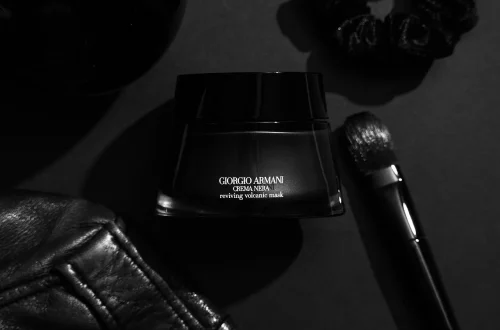
The Benefits of Gluten Free Cat Food for Your Feline Friend
In recent years, the rise of dietary sensitivities and preferences has extended beyond human food to our beloved pets. As cat owners become more aware of the ingredients in their pets’ diets, the demand for gluten-free options has surged. Cats, being obligate carnivores, have specific dietary needs that can sometimes be compromised by filler ingredients found in traditional cat foods. Gluten, a protein found in wheat and similar grains, can lead to various issues in some felines, making gluten-free diets a viable option for many.
When considering what to feed our furry friends, it’s essential to understand that not all cat foods are created equal. The ingredients matter significantly, as they can affect your cat’s overall health, energy levels, and even their mood. Many cats suffer from food allergies or intolerances, with gluten being one of the common culprits. By opting for gluten-free cat food, pet parents can help mitigate these issues, ensuring that their feline companions thrive. This trend towards healthier, specialized diets reflects a growing understanding of pet nutrition and the importance of tailoring diets to fit individual needs.
Understanding Gluten Sensitivity in Cats
Gluten sensitivity in cats is a topic that has gained attention in recent years, particularly as more pet owners become aware of the specific dietary needs of their cats. While gluten is not inherently harmful to all cats, certain individuals can develop sensitivities or allergies that lead to a variety of health issues. Symptoms can range from gastrointestinal discomfort, such as diarrhea and vomiting, to skin irritations and lethargy.
The feline digestive system is uniquely adapted to a high-protein, low-carbohydrate diet. Cats do not require grains or gluten to thrive, and many commercial cat foods include these ingredients as fillers rather than as a necessary nutrient source. For some cats, consuming gluten can lead to inflammation within the gut, exacerbating conditions like inflammatory bowel disease (IBD) or causing other digestive disturbances.
It’s also essential to recognize that gluten sensitivity can manifest differently in each cat. Some may show immediate reactions after consuming gluten-containing foods, while others may develop chronic issues over time. For cat owners, being vigilant about their pet’s diet and observing any changes in behavior or health is crucial. If you suspect that your cat might be gluten-sensitive, consulting with a veterinarian is an important step. They can provide guidance on proper testing and dietary adjustments to help manage any sensitivities effectively.
Transitioning to a gluten-free diet can help alleviate these symptoms and improve your cat’s overall well-being. By choosing high-quality gluten-free cat food, pet owners can ensure that their cats receive all the necessary nutrients without the risk of adverse reactions from gluten-containing ingredients.
The Nutritional Benefits of Gluten-Free Cat Food
Gluten-free cat food is not just about avoiding gluten; it can also offer a range of nutritional benefits that cater to the specific needs of cats. Many gluten-free options focus on using high-quality protein sources, such as chicken, turkey, or fish, which are essential for a cat’s health. Cats require amino acids, which are the building blocks of proteins, to maintain their muscle mass, energy levels, and overall health.
In addition to high-quality proteins, gluten-free cat foods often incorporate a variety of other ingredients that can be beneficial for your cat. For example, many brands use alternative carbohydrate sources like sweet potatoes or peas, which are easier to digest and provide essential vitamins and minerals. These ingredients can help maintain healthy energy levels while also supporting a well-functioning digestive system.
Furthermore, many gluten-free cat foods are enriched with omega fatty acids, which promote healthy skin and a shiny coat. Cats with sensitive skin or allergies may particularly benefit from these added nutrients, as they can help reduce inflammation and improve overall skin health.
Moreover, opting for gluten-free diets can lead to better digestion and nutrient absorption. Cats with gluten sensitivities may struggle with nutrient uptake when consuming gluten-filled foods, leading to deficiencies. By switching to gluten-free options, pet owners may notice improvements in their cat’s coat condition, energy levels, and overall vitality.
It’s important to note that when selecting gluten-free cat food, quality matters. Look for brands that prioritize animal-based proteins and avoid fillers. Reading labels carefully and understanding ingredient lists can make a significant difference in the nutritional value of the food you choose for your feline friend.
Improving Overall Health and Wellness
One of the most significant advantages of gluten-free cat food is its potential to improve overall health and wellness in cats. Many pet owners report noticeable changes in their cats’ behavior, mood, and physical condition after transitioning to a gluten-free diet.
Cats that experience food sensitivities often exhibit signs of discomfort, including lethargy or irritability. By eliminating gluten from their diets, many cats see improvements in energy levels and a more playful disposition. This can enhance the bond between cats and their owners, as a happier, healthier cat is more likely to engage and interact positively.
Moreover, a gluten-free diet can help reduce the risk of developing chronic health issues associated with food intolerances. Conditions like obesity, diabetes, and even some forms of kidney disease can be exacerbated by poor dietary choices. By opting for a gluten-free diet that focuses on high-quality ingredients, pet owners can help maintain their cat’s ideal weight and support long-term health.
Finally, the shift to gluten-free cat food can also promote better dental health. Many gluten-free options are formulated with specific textures that can help reduce plaque buildup, supporting oral hygiene. Cats that chew their food properly are less likely to experience dental issues, which can lead to more serious health problems if left untreated.
Overall, a gluten-free diet tailored to your cat’s unique needs can lead to significant improvements in health, vitality, and longevity. As always, it is advisable to consult with a veterinarian before making any major dietary changes to ensure that your cat’s specific nutritional requirements are being met.
Choosing the Right Gluten-Free Cat Food
When it comes to selecting the right gluten-free cat food, there are several factors to consider to ensure that your cat is receiving a balanced and nutritious diet. The first step is to read labels and understand the ingredients included in the cat food. Look for high-quality animal protein as the primary ingredient, as this is essential for your cat’s health.
Avoid brands that list gluten-containing grains, such as wheat, barley, or rye, as their primary ingredients. Instead, focus on those that utilize alternative carbohydrates like potatoes, peas, or lentils. These ingredients not only provide necessary energy but are also easier for cats to digest.
In addition to the ingredient list, it’s essential to consider the nutritional profile of the cat food. Ensure that the food meets AAFCO (Association of American Feed Control Officials) standards for complete and balanced nutrition. This ensures that the food provides all the essential nutrients your cat needs for optimal health.
Another crucial aspect is the brand’s reputation. Research brands that specialize in high-quality, grain-free, or gluten-free options. Look for those that have positive reviews from other pet owners and consult with your veterinarian for recommendations.
Finally, take your cat’s individual preferences into account. Cats can be finicky eaters, so finding a gluten-free option that they enjoy is key to successfully transitioning their diet. You may need to try a few different brands or flavors to find the perfect match for your feline friend.
In summary, choosing the right gluten-free cat food requires careful consideration of ingredients, nutritional content, and the reputation of the brand. With a bit of research and attention to your cat’s preferences, you can find a suitable diet that supports their health and happiness.
**Disclaimer:** This article is for informational purposes only and should not be considered medical advice. For any health-related concerns regarding your pet, please consult a veterinarian.




